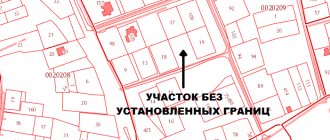Home / Social Security Law / Disciplinary action followed by dismissal
⭐ ⭐ ⭐ ⭐ ⭐ Good afternoon, readers of my blog, now we will comprehend the necessary topic for everyone - Disciplinary action followed by dismissal. Perhaps you may still have questions after you read, so it is best to ask them in the comments below, or even better - get advice from practicing lawyers on all types of law from our partners.
We constantly update information and monitor its updates, so you can be sure that you are reading the latest edition.
In the relationship that develops between the employer and hired employees, the discipline established in the work team is of no small importance, helping the head of the company to manage it, and the employees to be as focused, responsible and efficient as possible.
What is a reprimand?
Let us display in a table the main characteristics of the type of censure under consideration:
| Parameter | Description |
| What is | A form of reprimand that is next in severity to “remark.” This is a form of censure expressed officially. |
| How to register | In writing, by order. |
| Are there varieties | There is only one wording: “reprimand.” It is not allowed to combine it with the words “strict”, “with entry into ...”. If this is discovered, then the event can be successfully challenged in court. The use of these combinations of words in judicial practice is considered unlawful, since they are not provided for in the Labor Code of the Russian Federation (Article 192 of the Labor Code of the Russian Federation) and in labor legislation. |
| What actions can you be reprimanded for? | For all violations provided for in the Labor Code of the Russian Federation, paragraphs 6, 7, 7.1 and other paragraphs of Article 81, as well as Art. 77 and others relating to misconduct. These include acts related to failure to comply with job descriptions, internal regulations of the enterprise, and employment contracts. We list the typical actions associated with non-compliance with discipline:
Some offenses are reflected in federal laws, some may be provided for by local acts of the employer, but they must comply with the legislation of the Russian Federation. |
| Terms and repayment | Penalty cannot be applied after six months from the date of violation. If there was an audit, verification of financial and economic activities, then this period is 2 years. It does not include the time of a criminal case if it was initiated regarding a violation committed by an employee for which a reprimand is issued. The penalty is lifted automatically if there are no new reprimands for a year after it. The employer may at any time remove it ahead of schedule at the request of an employee, representative bodies, or on his own initiative (Article 194 of the Labor Code of the Russian Federation). |
| Peculiarities | It can only be given for violations of what the employee signed for in the job description, and for failure to comply with the general rules for the position provided for by law. |
| Legislation | The basic rules are contained in Chapter. 30 of the Labor Code of the Russian Federation (Articles 192–195) and also directly concerns this situation, paragraph 5 of Part 1 of Art. 81 TK. |
Attention
The wording “dismissal for reprimand” is used informally. If it is applied in documents, then they will not be valid, since this type of censure in itself is a penalty, like dismissal.
It is impossible to expel an employee for reprimands, no matter how many there are - there is no such article in the Labor Code of the Russian Federation. In addition, dismissal can only be for those acts for which disciplinary punishments from the Labor Code of the Russian Federation were not applied, that is, not for reprimands, but specifically for violations, on the grounds exhaustively provided for by the Labor Code of the Russian Federation (Articles 77, 80, 81, etc. ).
So, you cannot dismiss for the reprimands themselves, but if there are any (one or more), this can be done under clause 5 of Art. 81 of the Labor Code of the Russian Federation - in case of repeated failure to perform labor functions without good reason, if there is already at least one outstanding penalty.
How many reprimands does it take to get fired?
The legislation does not determine the number of penalties under consideration that give the right to dismiss an employee. That is, this can be done even if there is one such censure, but not based on its existence (you cannot fire for a reprimand), but the next time the employee violates discipline. It should be taken into account that in some cases repeated violations are required (clause 5, part 1, article 81 of the Labor Code).
Additionally
In most cases, they are kicked out after two reprimands, although this is at the discretion of the employer: he may not do this even if there are 3 or more reprimands of the type in question.
So, on this issue, the specifics are clear and comprehensive:
- This is the employer's right. The number of punishments before expelling an employee is not defined and is at the discretion of management;
- You can give several at once or sequentially, but only for different violations;
- is allowed for all types of non-compliance with discipline and rules that are charged to the employee: failure to fulfill duties, single or repeated violation.
Important
Let us separately point out an important point: you cannot impose another penalty for the same offense for which any punishment, including a reprimand, has already been applied. That is, it is impossible to fire someone for an offense for which there is already a punishment.
An analysis of judicial and legal practice reveals the conditions under which an employee can be dismissed:
- repeated violations . The employer has the right to apply dismissal if a new violation is discovered if the employee already has an outstanding penalty;
- one-time gross offense (clause 6 of article 81 of the Labor Code of the Russian Federation). If there are no outstanding penalties, then the employment contract can be terminated only under clause 6 of Art. 81 of the Labor Code of the Russian Federation, the list of such grounds is exhaustive and is interpreted unambiguously.
The procedure for dismissing an employee after a reprimand
If the violation was discovered six months after it was committed, it is no longer possible to impose penalties. The only exception is if the misconduct was discovered as a result of a financial audit of the company. In this situation, the manager has the right to punish the employee within 2 years from the date of the violation.
Remark and reprimand
The next stage of influencing the offender is a reprimand. This method is more strict and is used if the remark did not have the desired effect. This approach is used when an employee commits repeated violations after he has been reprimanded.
- a description of the fact of the employee’s absence from the workplace and the signs by which his absence was determined.
- Indications of the time during which the employee did not perform the duties required of him and the consequences that his absence entailed.
- Certification of the listed facts of violation committed by members of the commission by affixing a handwritten signature, with an explanation of the surname.
Dismissal procedure
The main and most important point of the event is to record the offense properly. If this is not done, then all subsequent actions may be declared illegal by the court.
For our case, the procedure of Art. 193 Labor Code of the Russian Federation. We consider the stages of recording an offense, issuing a reprimand and dismissal in the table:
| Stage | Actions | |
| Rebuke | ||
| Recording a violation | Memo, statements of employees, act with attesting witnesses, witnesses. | |
| Creation of a commission of inquiry | A decree (order) may create an investigation commission (to take inventory and carry out other actions). | |
| Confirmations | Results of medical examination, audit reports, examination. If an employee refuses to participate in these activities, then a report about this is drawn up. | |
| Checking for benefits | Pregnant women cannot be fired even if there are violations. | |
| Proposal for an employee to write an explanatory note | Such a petition is written in free form and submitted through the office against signature. Keep one copy for yourself. The deadline for response is 2 days. It can be larger, but it is desirable that it is no smaller, although its scope is not defined in the law. If no response is received, then a report about this is drawn up and the procedure continues. | |
| Results of the investigation | If a commission was created, it sets out the results of its work in a report or act. | |
| Checking the severity | The circumstances that led to the offense must not be valid (this is a mandatory condition of clause 5, part 1, article 81 of the Labor Code), otherwise the reprimand can be declared illegal through the court. | |
| Order of reprimand | It must be published within 1 month. after discovery of an offense, otherwise it is invalid (Article 193 of the Labor Code of the Russian Federation). No later than 3 days. After publication, this document is given to the employee. This period is mandatory and is provided for in Art. 193 TK. If there is a refusal to sign, then a document is drawn up. | |
| Dismissal | ||
| Repeated violation | The procedure is the same, but instead of a reprimand order, a dismissal order is issued in the T-8 form | |
| Final actions | Calculation, issuance of work and recording in it are carried out as usual, on the last working day. | |
Important
The entire procedure for a reprimand can be shortened and an investigation commission not created. Each action must be recorded in writing and each paper (offers to give an explanation, orders, instructions, etc.) must be handed over to the offender against a receipt through the office of the enterprise.
What entry is made in the work book?
There is an exhaustive list (in the Rules for their maintenance and storage, approved by Government Resolution No. 225) of what and how is recorded in this document, namely: data about the employee himself, about work and transfers, about dismissals, about awards and successes achieved. The law expressly prohibits entering information about disciplinary sanctions, except if it is in the form of dismissal.
The entry itself contains only the grounds for dismissal, for example, “The employment contract was terminated due to the employee’s repeated failure to fulfill his work duties without good reason, under clause 5 of part 1 of Article 81 of the Labor Code of the Russian Federation.” Write without abbreviations or abbreviations. The mark is sealed with the signature of the personnel officer or employer and the seal of the enterprise. In the appropriate fields indicate the date, as well as the details of the order.
Information
Entering information about reprimands on the personal card (T-2) is not provided, but is not prohibited. It will not be a violation if you add a section “Information on imposed penalties” and indicate this in it or in the “Additional information”. In practice, they do this or do not display this data anywhere at all.
A truant has no place at work: how to properly formalize the dismissal of an employee for absenteeism
The text of the document succinctly formulates the circumstances of the case, reflecting the person’s absence from the workplace during the specified period of time. The employer invites the violator of discipline to come up to familiarize himself with the prepared documentation, which allows the provision of certificates to justify absenteeism as a valid reason.
This is interesting: Changes and Additions to the Udo for Article 228 Part 2 of the Criminal Code of the Russian Federation
How to request an explanatory note?
The order is drawn up after conscientious execution of the accompanying documentation, in a standard form. It indicates the fact of unilateral termination of the employment contract due to the dismissal of the employee for absenteeism.
Art. 81 of the Labor Code of the Russian Federation indicates that the employer has the right to unilaterally terminate an employment contract as a disciplinary measure. He can exercise this right only subject to a number of conditions.
Payments and benefits
Any violations cannot serve to abolish any payments provided for by the Labor Code of the Russian Federation when calculating during the dismissal process. The employee is paid everything that is due, and he should not ask or petition for it - the accounting department must carry out the calculation on the last working day without any reminders or orders, since this is directly provided for in the Labor Code of the Russian Federation.
Payments are made for actual time worked and compensation for vacation. In our case, the payment of severance pay is not provided and it, as well as other amounts (compensation payments, etc.) are paid at the initiative of the employer or if provided for in the employment contract.
Attention
If the employee is absent on the last working date, then the payment is made no later than the next day after his personal written request.
How to challenge a disciplinary sanction
A reprimand or reprimand gives the employer the right not to pay incentive payments to the employee - some allowances and additional payments or a bonus - if this is provided for in the bonus regulations. In addition, if the employee commits a disciplinary offense again, he may be fired. All disciplinary sanctions are stored in the employee’s personal file or a folder with documents for the employee, which is kept by the employer - also no good.
An argument can be won, but a relationship can be ruined.
Court. A statement of claim can be filed in court bypassing the labor dispute commission. The period for filing an appeal is three months from the moment the employee learned of a violation of his rights, or a month from the date of familiarization with the dismissal order. There is no need to pay state duty.
As noted, the order to reprimand is brought to the attention of the employee against signature. In accordance with Part 6 of Art. 193 of the Labor Code of the Russian Federation, the deadline for submitting an order to an employee for review is 3 working days after its issuance. If the employee does not become familiar with the act, then an act of refusal to familiarize himself with the order is drawn up.
- The employee must be notified of the punishment, as evidenced by his signature. Familiarization is mandatory;
- It is necessary to indicate a specific norm or set of norms of the Labor Code of the Russian Federation on the basis of which the employee is punished. This will serve as a legal basis for making a decision;
- The text of the document must be written clearly and clearly. Details of the circumstances surrounding the offense should be included.
This is interesting: Should the Head of the Department of Internal Affairs approve the Resolution on the Refusal to Initiate a Criminal Case made by the Investigating Officer?
Drawing up an act of refusal to familiarize yourself with the order
There are a number of reasons that exclude disciplinary action . This is the employee’s disability, illegal actions of the employer, lack of materials necessary for the employee to perform his duties.
You cannot fire citizens while they are on vacation or sick leave. A reprimand cannot be given during these periods either. But some actions for an internal investigation can be carried out, for example, sending a letter with a proposal to provide an explanatory statement. The employee will then have the right to give an answer within 2 days not during sick leave, but after returning to work.
For all violations provided for in the Labor Code of the Russian Federation, paragraphs 6, 7, 7.1 and other paragraphs of Article 81, as well as Art. 77 and others relating to misconduct. These include acts related to failure to comply with job descriptions, internal regulations of the enterprise, and employment contracts.
Is it possible to challenge dismissal for a reprimand?
Payments are made for actual time worked and compensation for vacation. In our case, the payment of severance pay is not provided and it, as well as other amounts (compensation payments, etc.) are paid at the initiative of the employer or if provided for in the employment contract.
Disciplinary action in the form of dismissal is considered a last resort measure applied to the offending employee. It is provided for by Art. 192 Labor Code of the Russian Federation. An exhaustive list of grounds for which a penalty in the form of termination of an employment agreement is provided contains Art. 81 Labor Code of the Russian Federation .
Who can't be fired for reprimanding?
After reprimands, all beneficiaries, except pregnant women, can be fired without restrictions for subsequent violations. This category cannot be expelled under any circumstances (except for the liquidation of an organization), even if there are violations (Article 261 of the Labor Code of the Russian Federation).
Important
A pregnant woman can be reprimanded and suspended from work, but she cannot be fired.
You cannot fire citizens while they are on vacation or sick leave. A reprimand cannot be given during these periods either. But some actions for an internal investigation can be carried out, for example, sending a letter with a proposal to provide an explanatory statement. The employee will then have the right to give an answer within 2 days not during sick leave, but after returning to work.
Dismissal procedure for disciplinary action
The employer has the right to terminate the employment contract and not for gross violations of labor discipline, if they are multiple. In order to dismiss an employee, it is necessary to first apply other disciplinary measures (reprimand and reprimand) to him.
Basic standards
It is necessary to take into account that the characteristic of multiple offenses is limited in time. All of them must fit within the calendar year. That is, if an employee was late for work twice with a difference of three years, these acts cannot be regarded as multiple violations of labor discipline.
I work as a leading engineer at a state enterprise. We have many local regulations with rules and restrictions that are unusual for ordinary companies. Violating these rules is strictly prohibited. A small offense, which might be overlooked at a regular job, will most likely result in an internal investigation and disciplinary action at a state-owned enterprise.
Is it possible to challenge dismissal for a reprimand?
Any types of disciplinary sanctions can be challenged by the state labor inspectorate and bodies authorized to consider individual labor disputes. There you need to write a statement in free form, where you outline the circumstances, your demands, evidence, and provide evidence of your innocence. The procedure is described in Chapter. 60 Labor Code of the Russian Federation.
Attention
The most fundamental way to appeal against an employer's actions is to file a lawsuit.
As a rule, this method is used after contacting the state labor inspectorate, if its order is not followed by the employer or if it does not satisfy the employee.
Dismissal for disciplinary action
An employee’s medical record is a document necessary for those workers who deal with food, storage, and transportation. Without this document, a person will not be able to get a job in an organization whose work is related to serving the population. The document reflects information about the employee’s health status, ability to work, diseases, number and frequency of medical examinations.
This is interesting: Does a Labor Veteran Have a Benefit for Paying for Garbage?
How many disciplinary offenses are required for dismissal?
An employee can be dismissed only if there are grounds. They are defined by law. Grounds for dismissal may include disciplinary offenses committed by employees who have already been punished for similar acts in reserve. In addition, such an employee has an outstanding penalty. You can also be fired for absenteeism, showing up at work in a state of alcohol or drugs, disclosing trade secrets, committing theft, or deliberately destroying the employer’s property.
For all types of penalties, you can apply to the state labor inspectorate and to bodies that have powers in individual labor disputes. It is necessary to apply in writing in free form, briefly stating in the application the essence of the requirements and a description of the situation.
- reinstate the employee in his previous position and with the same functions (even if another specialist has already been hired for this position);
- pay average earnings for forced absence, Art. 234 TK;
- compensate for material and moral damage (by court decision);
- add a period of absence to the total length of service and change the entry in the labor record;
- transfer to the budget an administrative sanction in the amount of 5,000 rubles (for the first person of the company and individual entrepreneurs) and 30,000-70,000 rubles (for the legal entity itself), possible fines are listed in Art. 5.27 Code of Administrative Offences.
Sample order for leave followed by dismissal
You cannot dismiss a specialist who refuses to perform his duties if he sees that labor protection or safety is not ensured, Art. 379 TK. If the employee knew about the danger and nevertheless started work, then this will not be a mitigating circumstance.
The following circumstance is important in this case: if the manager decides to part with the specialist, then there is no need to announce anything for a repeated violation; it is necessary to prepare an order for dismissal. Because if an employee is punished, dismissal for a reprimand cannot be made, since each violation can only be punished once.
- repeated violation or failure to fulfill labor duties, clause 5 of Art. 81 TK;
- gross violation of work duties and labor discipline (absenteeism, drinking alcohol, theft, disclosure of confidential data, etc.), clause 6 of Art. 81 TK;
- commission of an immoral offense by a teacher, clause 8 of Art. 81 TK;
- making an unreasonable decision by the manager, which resulted in harm to the company, clause 9 of Art. 81 TK.
After how many reprimands can an employee be fired?
Disciplinary punishment is valid for one year, and if during this time the employee has not committed new offenses, it is removed automatically. However, if within a year the person commits another offense, he may be fired.
19 Dec 2021 uristlaw 230
Share this post
- Related Posts
- How to cancel a seizure and allocate a share of common property
- FZ 400 With Changes For 2021 For A Pensioner With A Dependent Year About Pensions With Comments
- Additional payments for the wives of Chernobyl victims
- Debt to the Bailiffs from the Seller of the Apartment







